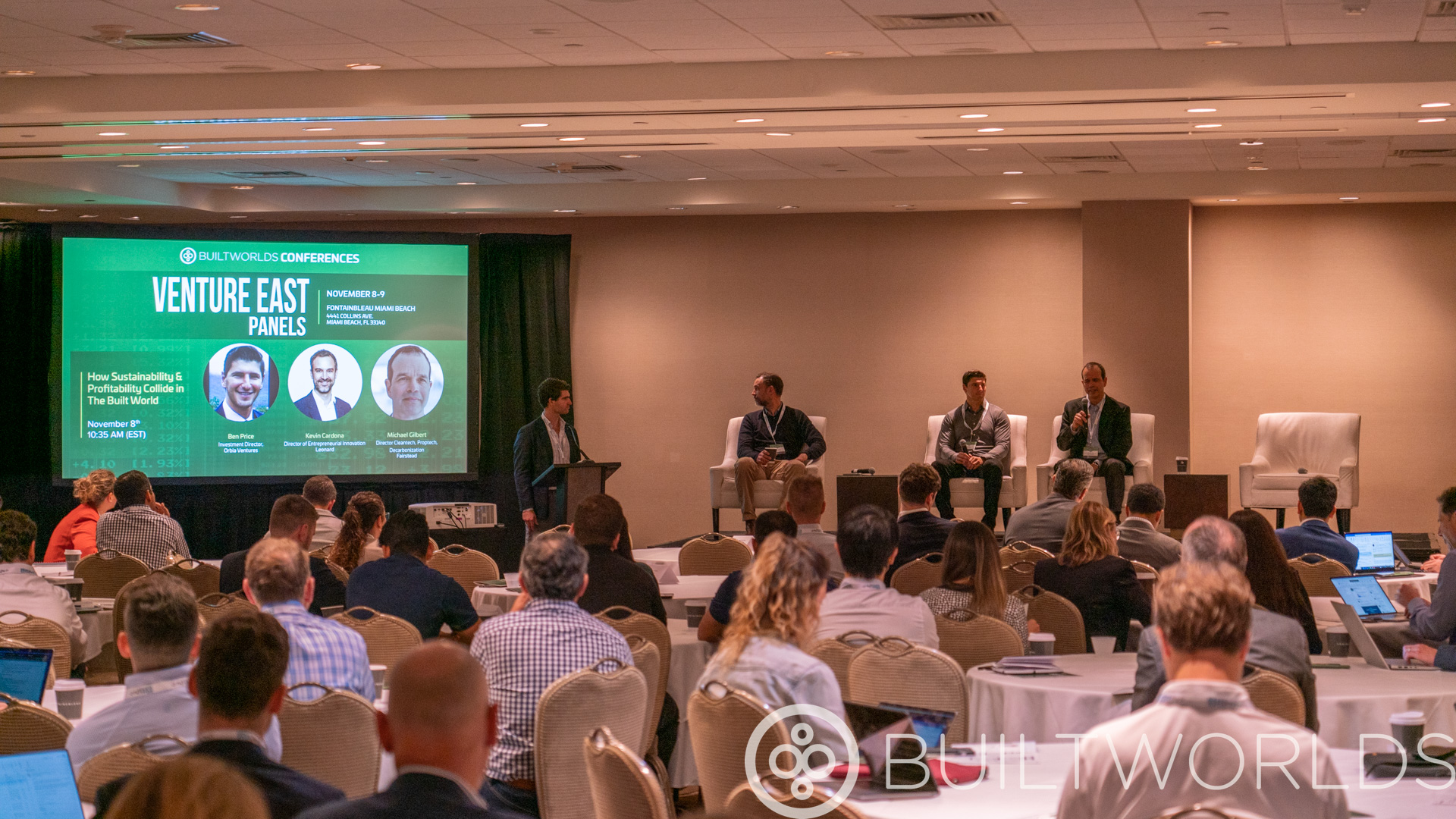
Climate tech has dominated the investment landscape in construction tech recently, with three startups leveraging Climate Tech themes garnering nearly $4 billion of investment in the third quarter. While past pushes for sustainability in buildings and infrastructure have been met with limited success, this year’s BuiltWorlds Venture East Sustainability panelists outlined a host of reasons why things are very different this time. On the one hand, the sector is benefiting from companies making much firmer commitments to reduce emissions than they have made in the past and being held accountable for those commitments. On the other, governments are increasing requirements in their own procurement while at the same time providing an unprecedented level of support for the ecosystem in the form of grants, tax breaks, and other subsidies. On the heels of these customer and government dynamics, investors are clearly making bets, and a growing crop of startups are looking to take advantage of the relative tailwinds.
Company Sustainability Pledges Get Real and So Do Opportunities
As of this past June, nearly one thousand publicly traded companies have made commitments to cut their carbon emissions. At the same time, the Securities Trade Commision and others have been taking steps to hold companies accountable for these commitments. Ben Price, Investment Director, Orbia Ventures made the point that those pledges are making their way from the c-suite into different parts of the companies that have made pledges, and, as they do, managers across those companies are determining how to take action on the pledges. The result is that more people in capital projects are asking about steps their providers can take, and that is creating more opportunities. Another panelist, Kevin Cardona, of Vinci’s Leonard presented the flipside of Price’s point, saying that as customers are increasingly asking for solutions, “sustainability represents a tremendous opportunity to win market share if you take leadership.”
Government Subsidies and Mandates Are Having Impact
Another Panelist, Michael Gilbert of Fairstead Ventures addressed why demand is growing from the project developers’ perspective. He pointed out that developers are getting more sophisticated about understanding how to take advantage of incentives and credits from governments. At the same time he observed seeing more sustainability requirements being incorporated into requests for proposals from the public sector owners his firm serves. He indicated that he saw three waves of refp’s come out in New York related to affordable housing requiring steps related to sustainability. Meantime, he observed that subsidies on the “opex” and the “capex” side of the business are materializing, and companies that are sophisticated about understanding them are finding new avenues to project finance.
Climate Tech’s Deep Tech Dilemma
While panelists acknowledged the strength in building technology and construction technology’s clean tech sector, Cardona sounded a cautionary note. His company, Vinci, has signed a pledge of carbon neutrality by 2050, and he said they know they need deep tech to get there. He cited technologies involved in making safe and commercially viable clean hydrogen, nuclear, and other breakthroughs in order to help meet these goals. These are very expensive technologies to develop. Government grants are helping, but the sheer cost involved with developing the kinds of deep technology that may be needed at scale to allow providers to meet goals may dampen investor appetites. Additionally, the panel sounded cautionary notes about technologies that require government support to be viable. There again, Cardoza offered the importance of thinking of government grants as “icing on the cake” and valuable lifelines for early players, while ensuring that companies can be viable without it.
For further coverage of how sustainability technology is impacting the industry, BuiltWorlds Analysts Team is offering three different research tracks. The Building Tech Track includes coverage of advanced materials, tools for planning more sustainable buildings, and sustainability in building operations. Construction tech looks at the net zero job site, while the Infrastructure Track, launching in 2024 will look at advanced materials, tools for planning more sustainable infrastructure, and sustainability technology for infrastructure maintenance and operations. Click here for more information.

Discussion
Be the first to leave a comment.
You must be a member of the BuiltWorlds community to join the discussion.